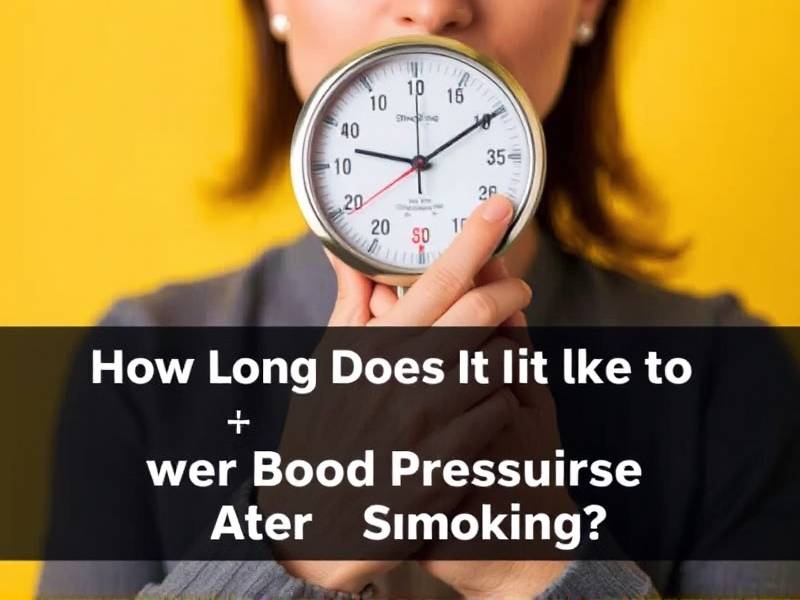How Long Does It Take to Lower Blood Pressure After Quitting Smoking?
The Impact of Smoking on Blood Pressure
Smoking is a well-known risk factor for high blood pressure, or hypertension. The chemicals in cigarettes can cause immediate spikes in blood pressure, and over time, they can lead to chronic hypertension. For those looking to quit smoking, understanding the timeline of health improvements can be a powerful motivator.
Immediate Changes
It's important to note that the process of lowering blood pressure after quitting smoking doesn't happen overnight. However, there are immediate changes that occur within hours of quitting. According to the American Heart Association (AHA), just 20 minutes after your last cigarette, your heart rate and blood pressure begin to drop.
Short-Term Improvements
Within a few days to weeks after quitting, you'll start to see more significant improvements. The AHA states that within two weeks to three months, your heart rate and blood pressure should return to near-normal levels. This is due in part to the body's ability to begin repairing damage caused by smoking.

Long-Term Benefits
The longer you remain smoke-free, the more substantial the benefits will be. Studies have shown that within one year of quitting smoking, your risk of heart disease is reduced by 50%. Your blood pressure will continue to improve over time as your body continues its healing process.
When Will Blood Pressure Be Normal?
The timeline for when your blood pressure will return to normal after quitting smoking can vary from person to person. Some may see significant improvements within just a few weeks, while others might take several years. Generally speaking:
- Within 3-6 months: Most people will see a reduction in their blood pressure.
- Within 1-2 years: The risk of heart disease drops significantly.
- Within 5-15 years: The risk of stroke can decrease by up to 30%.
Factors Influencing Recovery
Several factors can influence how quickly someone's blood pressure returns to normal after quitting smoking:

- Duration of Smoking: The longer you've smoked and the more cigarettes you've smoked daily, the longer it may take for your blood pressure to normalize.
- Age: Younger individuals tend to recover faster than older adults.
- Overall Health: People with other health conditions may experience slower recovery times.
Final Thoughts
Quitting smoking is a challenging but rewarding decision. While it may take time for your blood pressure to normalize completely, the health benefits are well worth the wait. Remember that each day without a cigarette brings you one step closer to improved health and well-being.
By understanding the timeline and factors at play, you can stay motivated and focused on achieving long-term success in your journey towards better health.
